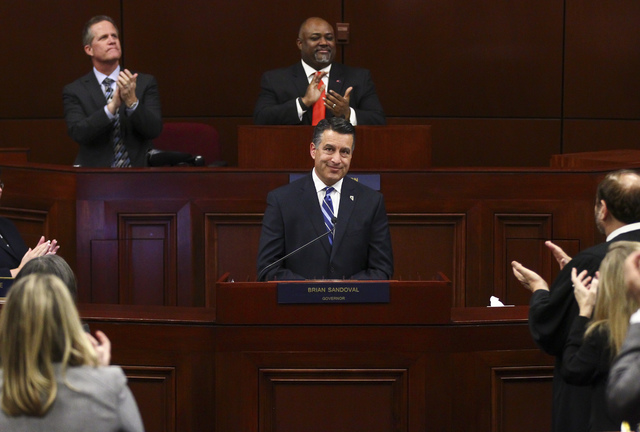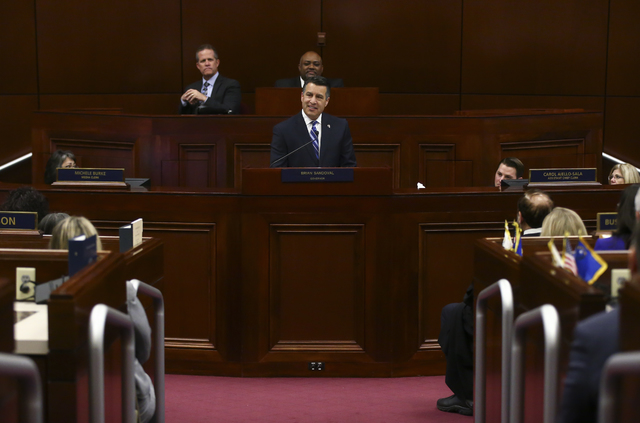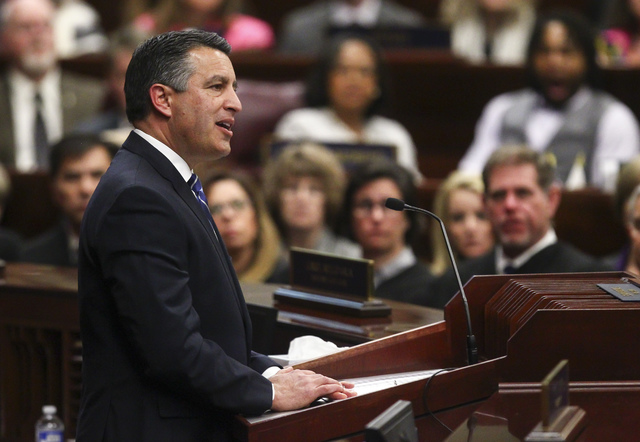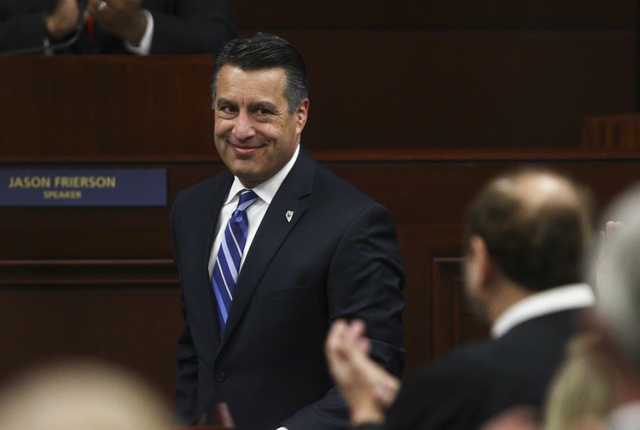ESA law likely faces rocky road despite governor’s $60M funding proposal
Supporters of the state’s Education Savings Account program were buoyed by Gov. Brian Sandoval’s proposal to fund the controversial law with $60 million for the next two years.
But the next step might prove difficult as lawmakers seek a compromise on a new funding mechanism when the Legislature convenes Feb. 6, according to state Sen. Scott Hammond, R-Las Vegas, who authored the 2015 bill.
Hammond’s bill will need to be amended to remove references to the Distributive School Account, which the state Supreme Court ruled cannot be the funding source. Democratic opposition to the program could slow or even derail the amendment process.
“This is where the bargaining begins,” Hammond said Wednesday. “Somehow we’re going to have to come to the table and figure out how to get this thing through.”
Not everyone sounded as agreeable as Hammond. Clark County School District Superintendent Pat Skorkowsky said the $60 million could be put to better use.
“CCSD was the first district in the state to offer choice to parents through our magnet, career/technical academies and open enrollment. Monies need to be further invested in these public school programs to ensure that our most challenged students have choice,” Skorkowsky said in a statement.
The Nevada State Education Association, the statewide union representing teachers, echoed Skorkowsky’s remarks.
“The truth is, any voucher program that diverts public money to private education will only short-change students in public schools and leave most with no choice at all,” said Natha Anderson, an English teacher and Washoe Education Association president.
Sandoval’s proposal allows $25 million for the program in the first year of the biennium and $35 million in the second year. The money will provide for support staff to oversee the program, but the bulk of the funding each year will go toward students in the form of grants.
It was unclear Wednesday how Sandoval planned to fund the $60 million proposed for the program.
The average amount will be around $5,100. But some special needs or low-income students could be eligible for up to $5,700 a year.
The law was passed by the Republican-held Legislature in the 2015 session. Parents can use the money to cover the cost of private or religious school tuition, tutoring or homeschool expenses. The law had no stipulations about limiting families eligible for the program, a popular feature of similar programs in other states.
Initially, the money for the program was set to come from state funds that were already funding public education. That measure drew legal challenges from families and the American Civil Liberties Union.
Nevada’s Supreme Court did not rule the program unconstitutional. Instead, the court ruled the funding source could not come from money that already had been set aside for public education.
“It remains clear that ESAs are a constitutional effort to enhance the education of all and that ESAs can be fully implemented once the program receives funding from the Legislature,” Attorney General Adam Laxalt said in a statement Wednesday.
Between 8,000 and 9,000 students have started the application process, but it’s unlikely that many students will be able to be funded through the program initially. In a statement Tuesday night, state Treasurer Dan Schwartz said he expected the number of applicants to rise and that the governor’s proposal was insufficient.
“We, of course, appreciate the Governor including $60 million towards funding ESAs in his remarks today,” Schwartz said in a statement Tuesday. “The number is low; especially considering all those parents that we believe will apply once the uncertainty is removed.”
Contact Meghin Delaney at 702-383-0281 or mdelaney@reviewjournal.com. Follow @MeghinDelaney on Twitter.
BY THE NUMBERS:
$60M: The total amount Sandoval is recommending for the program over the next two years
$24.3M: The total amount recommended to be available in 2017-18 for grants
$34.1M: The total amount recommended to be available in 2018-19 for grants
$5,100: The approximate amount each of each grant per student
11,447: The total amount of grants that could be funded in the two year period
8,000-9,000: The number of applications received so far by the state treasurer's office




















